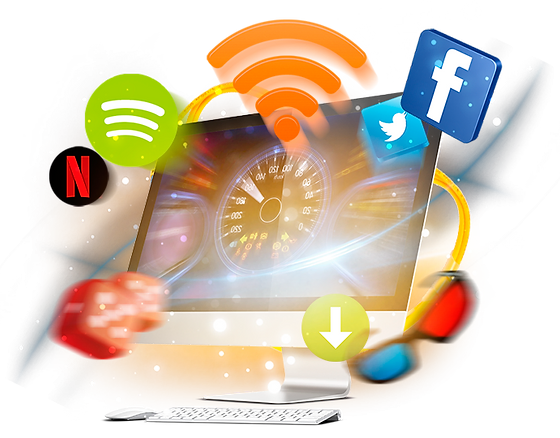The internet is a global network that connects millions of computers and devices together, allowing them to communicate and share information. It's a vast and complex system that has become an integral part of modern life. Here are some key points about the internet:
1 - Definition: The internet is a decentralized network of networks, meaning it's made up of many interconnected smaller networks. It allows computers and devices to exchange data and communicate with each other using standardized protocols.
2 - Protocols: The internet operates using various protocols, such as TCP/IP (Transmission Control Protocol/Internet Protocol). These protocols ensure that data can be transmitted reliably across the network.
3 - World Wide Web (WWW): The World Wide Web, often referred to as the "web," is a subset of the internet. It consists of interconnected documents and resources that are linked together through hyperlinks. Web browsers like Chrome, Firefox, and Safari allow users to access and interact with these resources.
4 - Online Services: The internet provides a wide range of services and applications, including email, social media, online shopping, video streaming, cloud computing, online banking, search engines, and much more.
5 - Global Reach: The internet is accessible almost anywhere in the world, provided there is an internet connection available. This accessibility has helped connect people, businesses, and information across geographical boundaries.
6 - Internet Service Providers (ISPs): ISPs are companies that provide individuals and organizations with access to the internet. They offer various types of connections, such as broadband, fiber-optic, and mobile data connections.
7 - Internet of Things (IoT): The IoT refers to the network of physical objects (devices, vehicles, appliances, etc.) that are embedded with sensors, software, and connectivity, allowing them to collect and exchange data. This concept expands the internet beyond traditional computing devices.
8 - Security and Privacy: With the vast amount of data being transmitted and stored on the internet, concerns about security and privacy have become increasingly important. Encryption, firewalls, and other security measures are used to protect sensitive information.
9 - Evolution: The internet has evolved over the years, from its early beginnings as a research network to the global phenomenon it is today. It has transformed communication, business, education, and entertainment.
10 - Challenges: Despite its many benefits, the internet also poses challenges such as cybercrime, misinformation, digital divide (unequal access), and issues related to online privacy and data protection.
The internet is a rapidly evolving technology, so there may have been developments since that time.
***********************************

